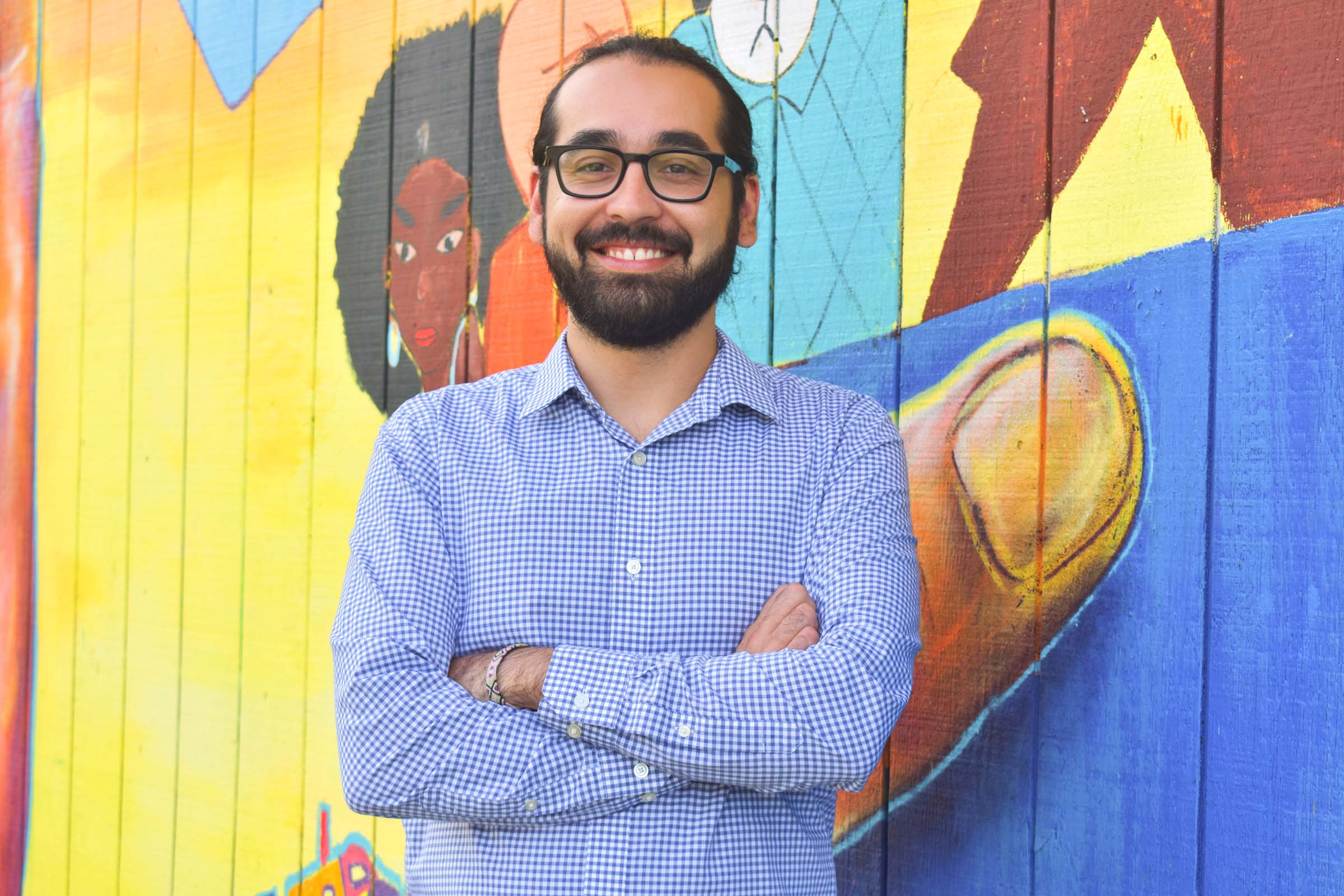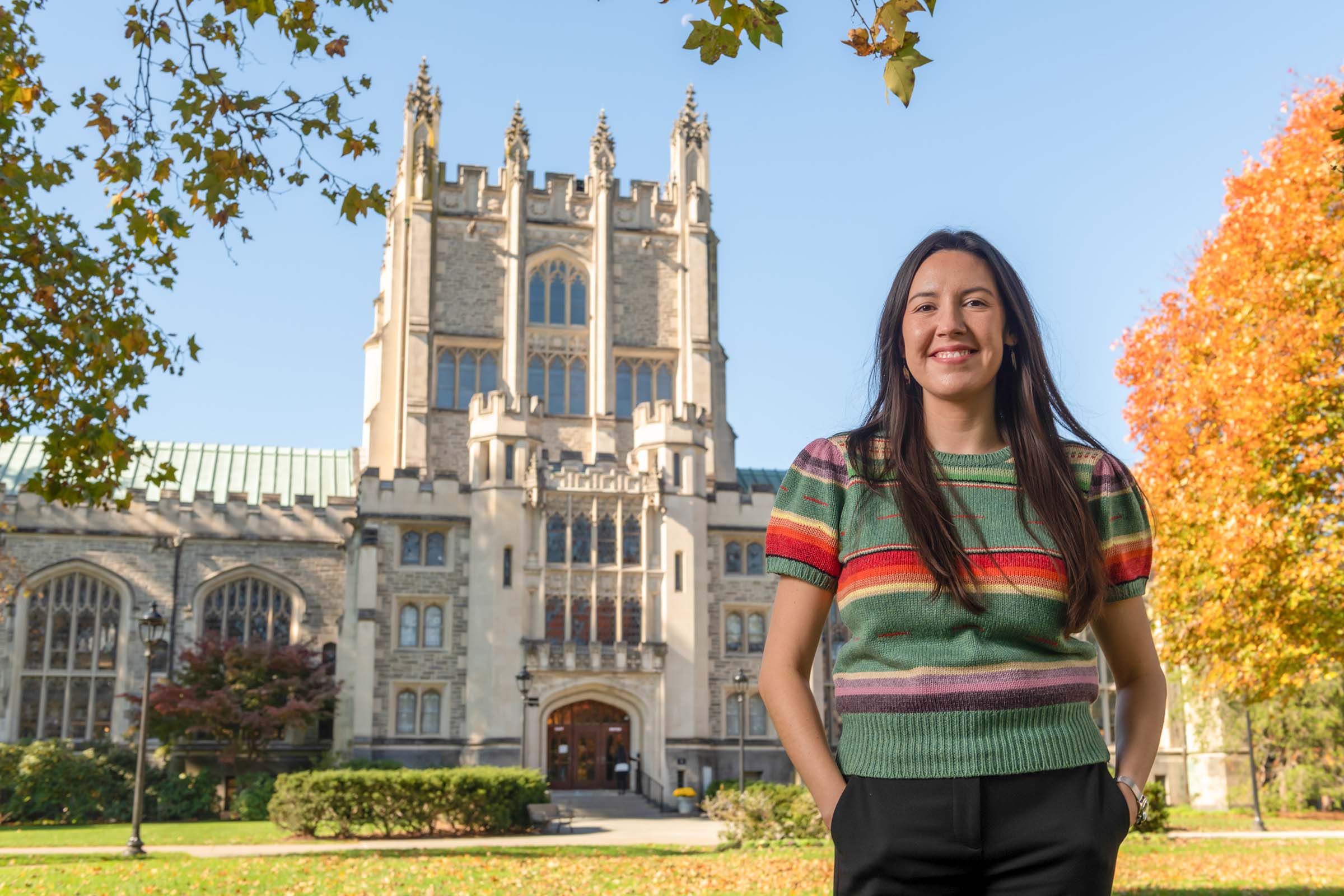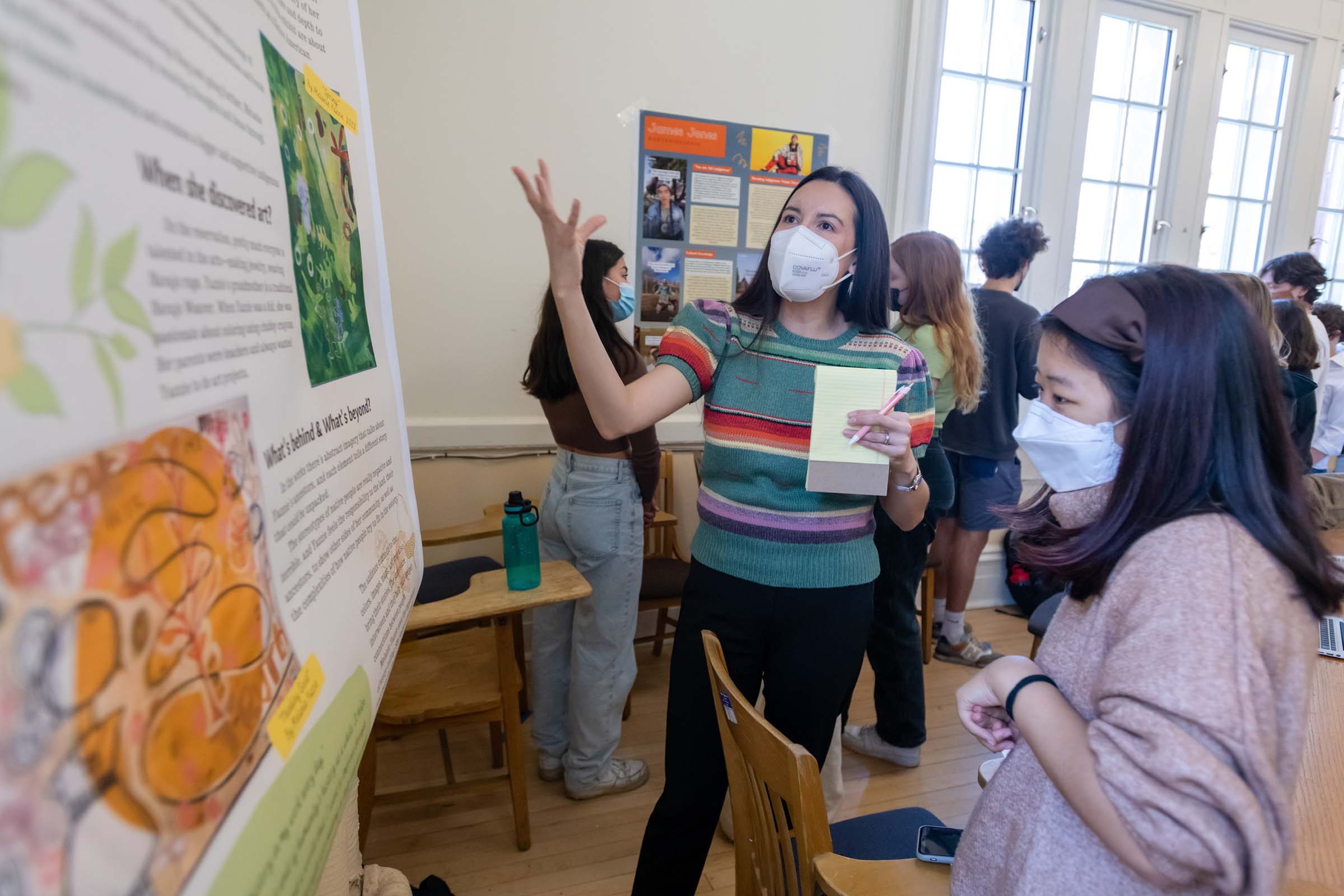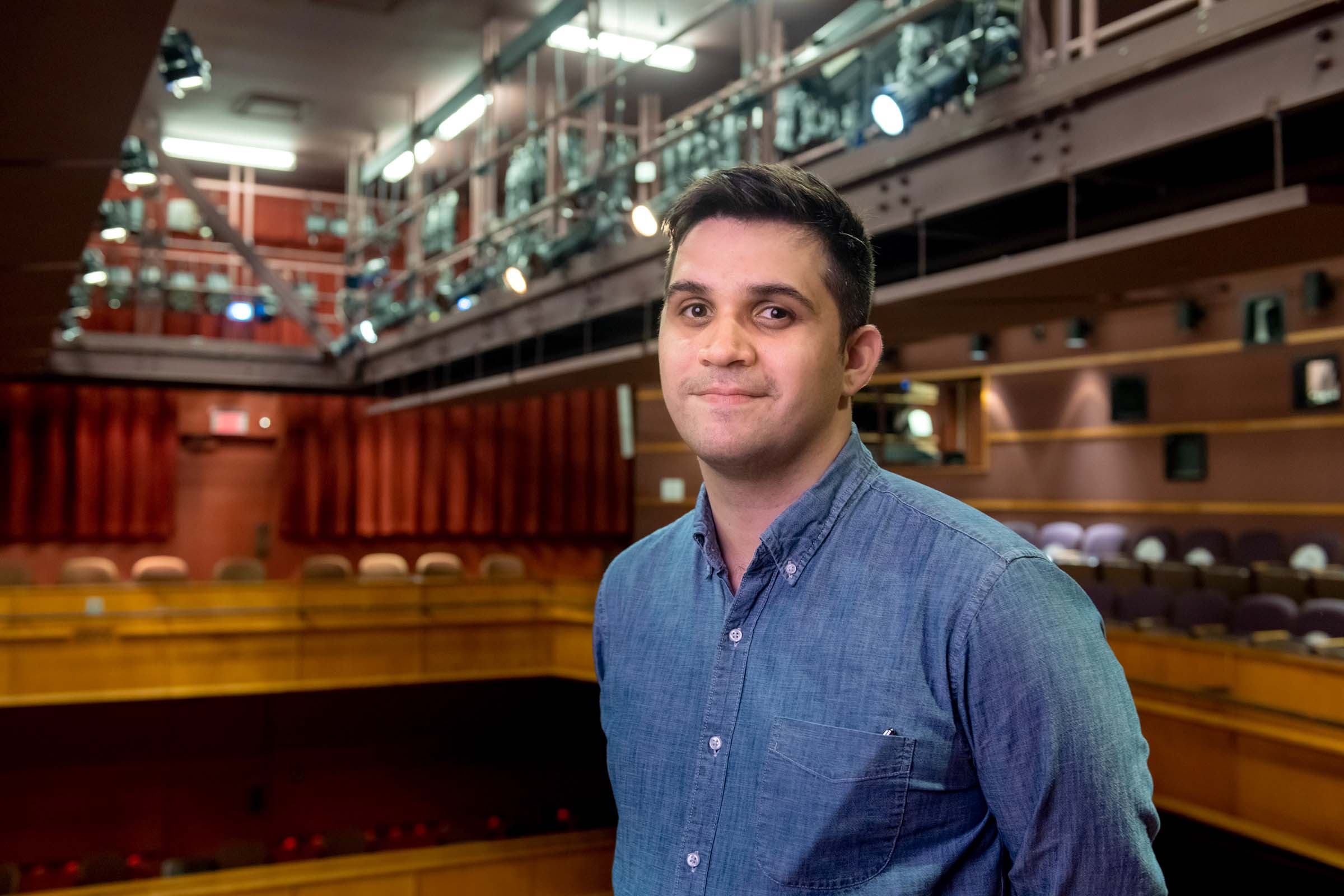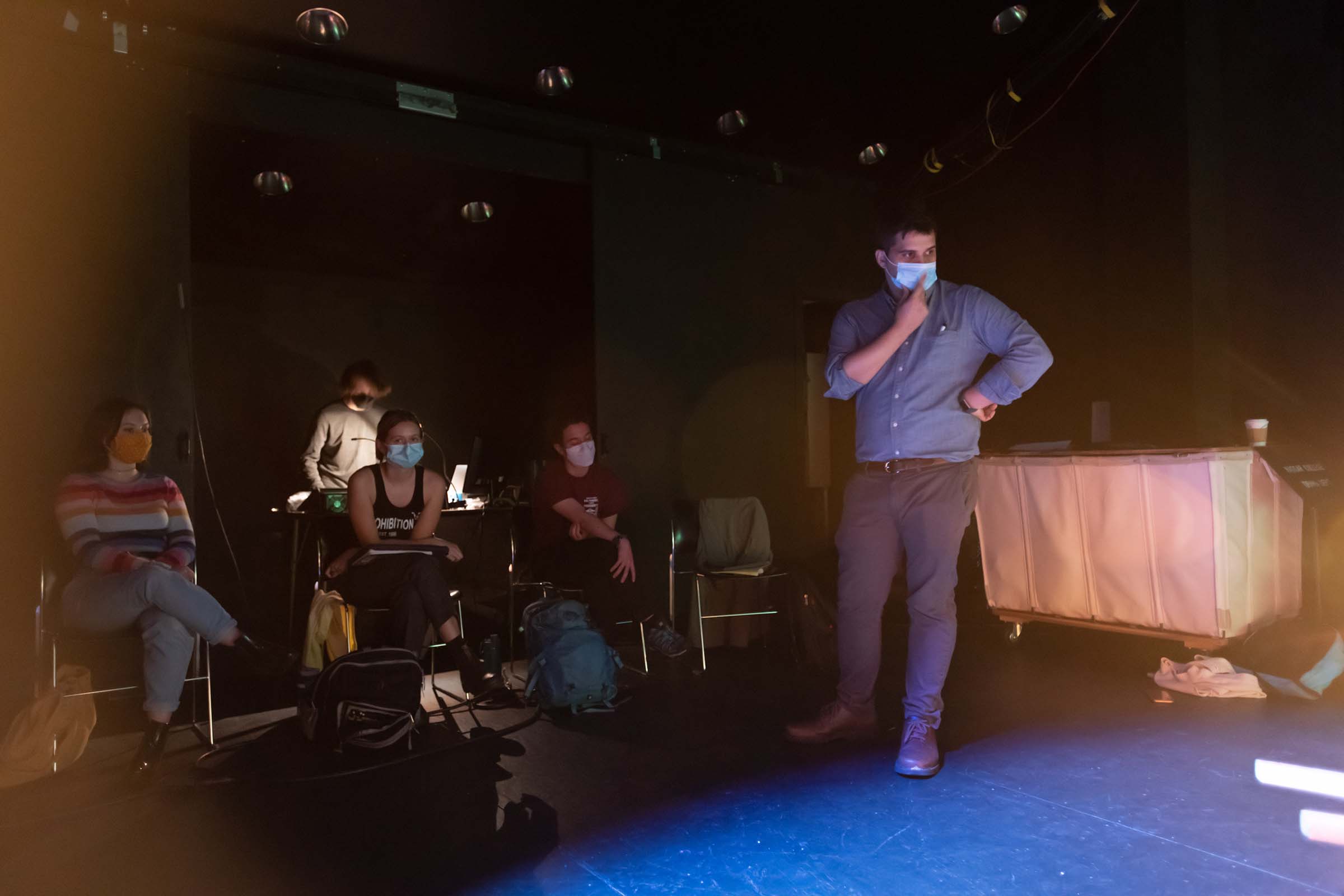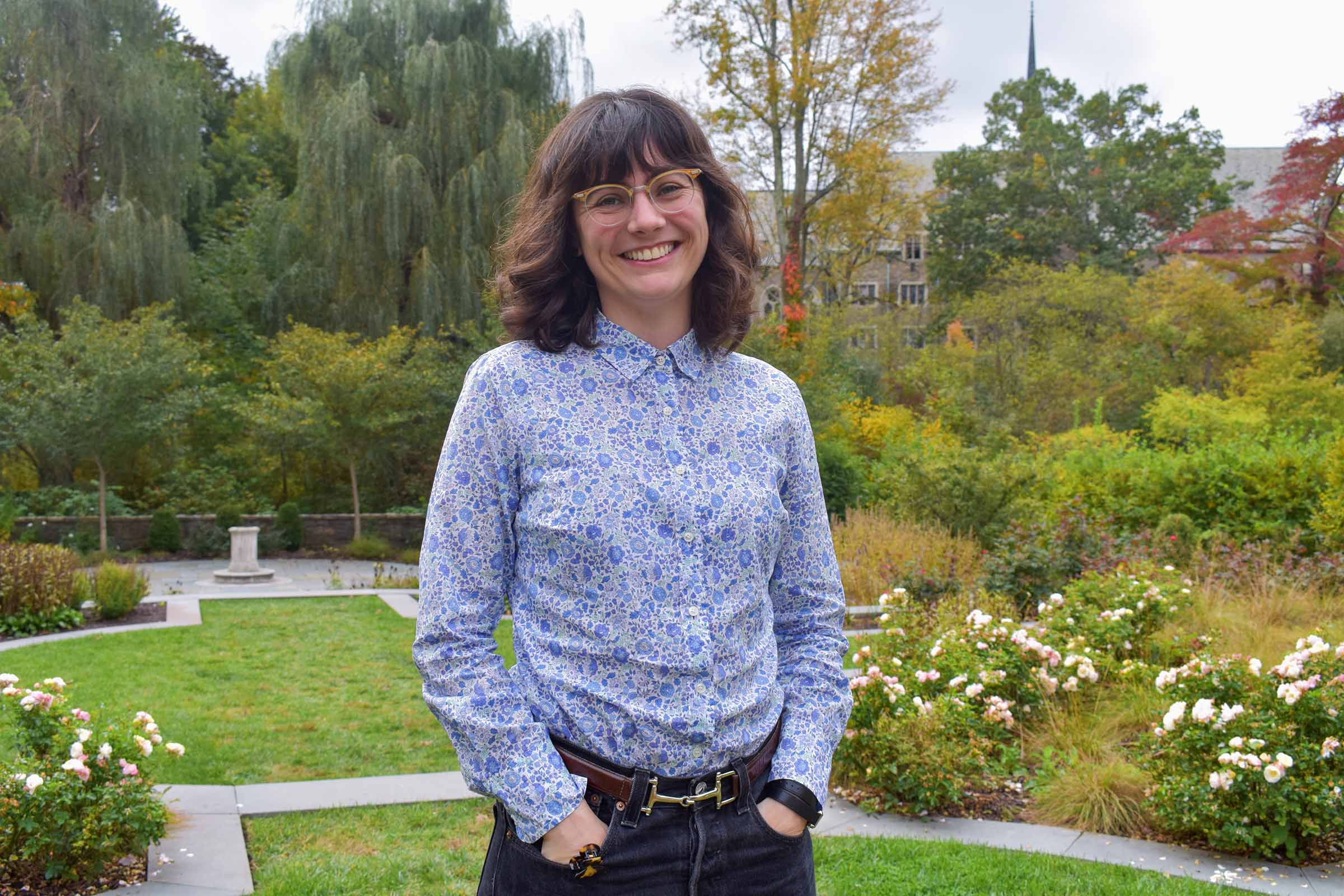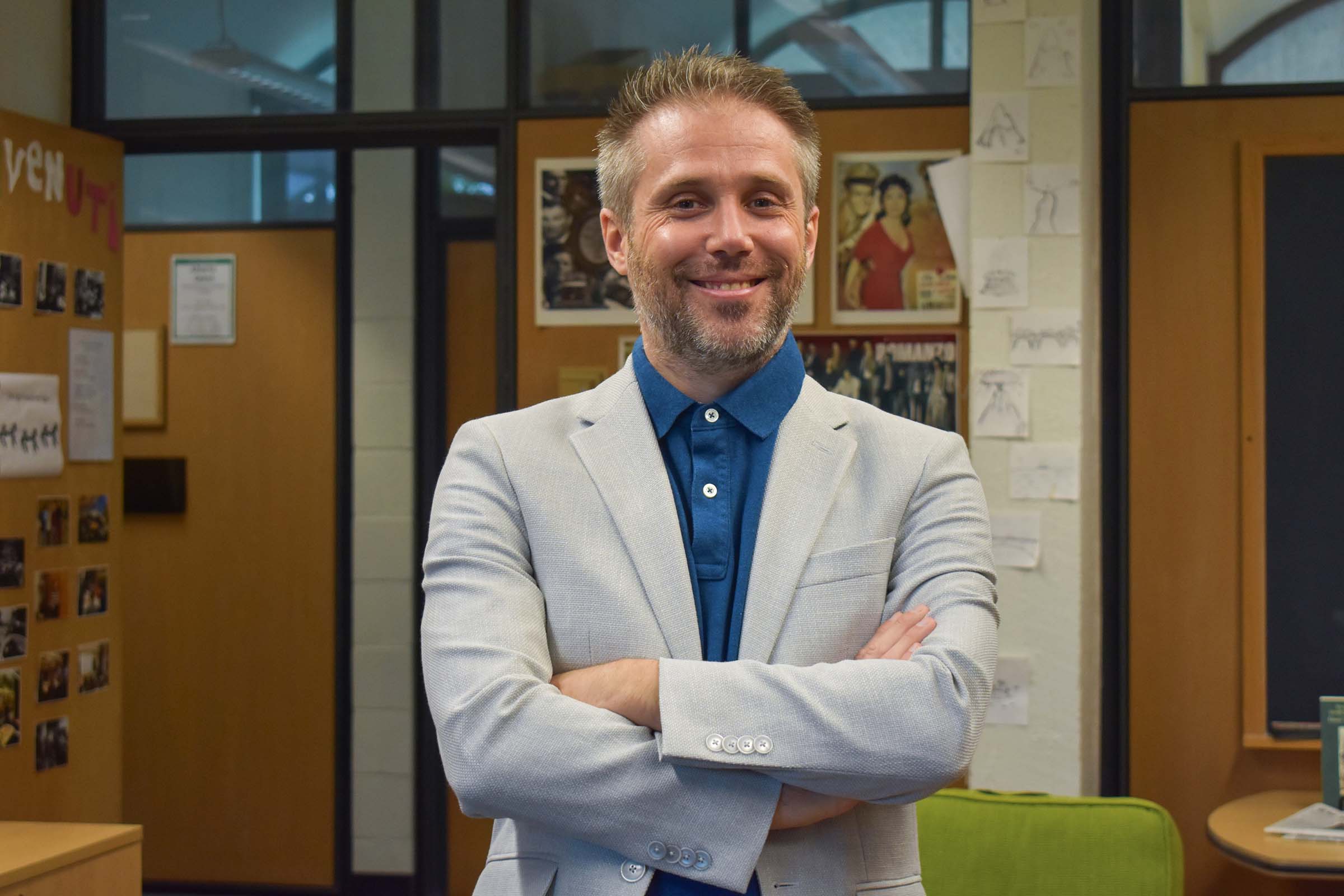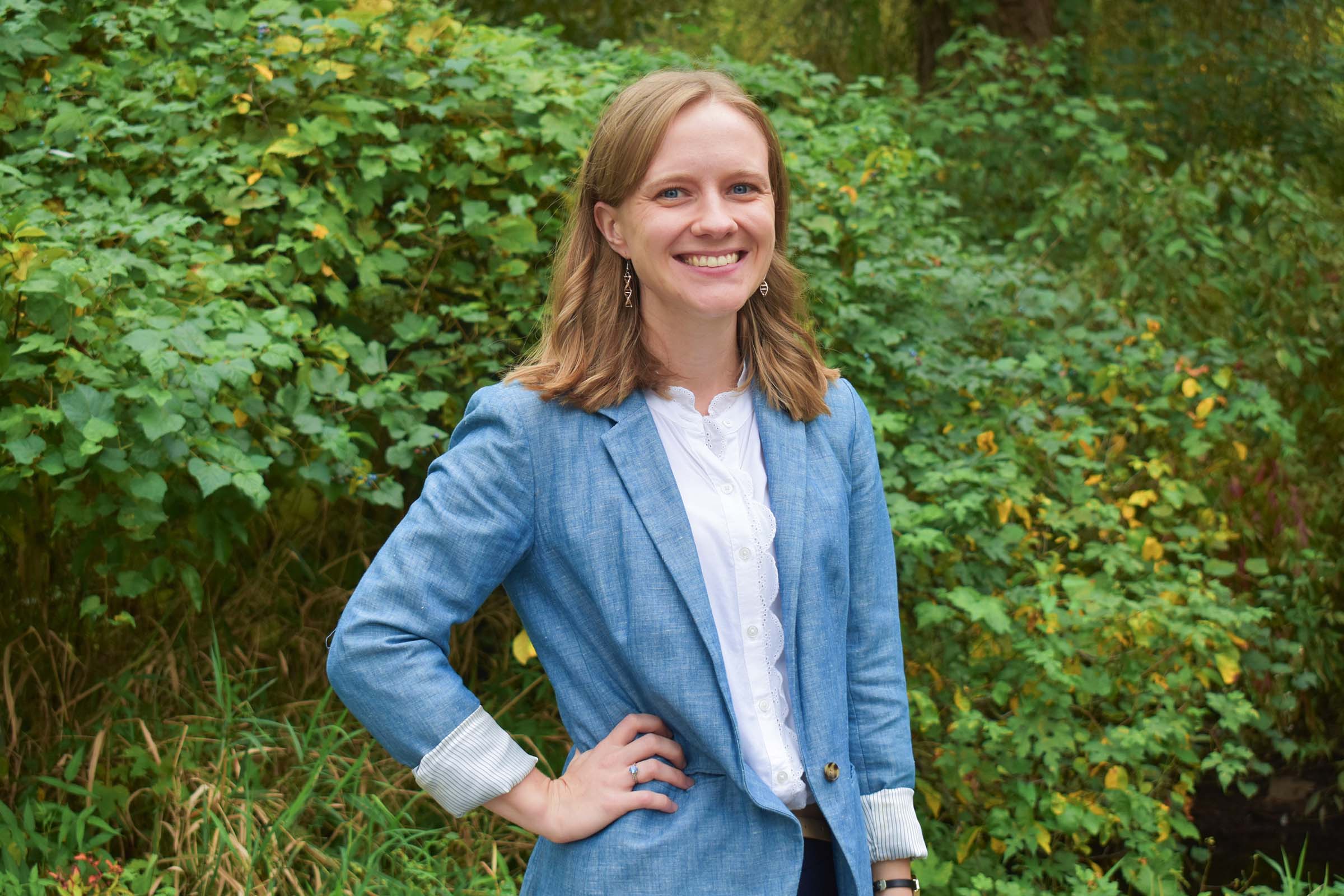New Vassar Faculty Members Bring Unique Talents, Diverse Backgrounds to Campus
Alejandro Márquez has spent time on the U.S.-Mexican border talking not only to those seeking entry to the United States but also to the people who provide essential services to these families as they navigate the immigration system.
Mallory Whiteduck brings a personal perspective to her teaching of Native American and Indigenous political theory: A member of the Algonquin nation, Whiteduck grew up on her reservation and maintains close ties to home.
Brandon Stirling Baker has honed his craft as a lighting designer for the Boston Ballet, the Alvin Ailey Dance Company, and other theatrical organizations in the United States, Europe, and Asia. Recently, Baker launched an initiative designed to promote the work of African American artists across the country.
Márquez, Whiteduck, and Baker are bringing their unique talents and backgrounds to Vassar classrooms this fall as new members of the faculty. They are among the 30 new members of the faculty, six of whom are on tenure track appointments, to join the more than 300 existing faculty. Following are excerpts of conversations with these three remarkable scholars and three others who joined the faculty this year:
Alejandro Márquez, Mellon Postdoctoral Fellow in International Studies; BSFS, Georgetown University; MA and PhD, University of Texas at Austin. Márquez is teaching a first-year course, A Lexicon of Forced Migration, that examines the root causes of displacement and migration, including economic, political, and environmental factors, and how the issue is represented in the media, as well as how migrants are treated in receiving countries.
About his scholarly research: “At the University of Texas, I investigated the extent of solidarity among the immigrants and the impact among caregivers who work for immigrant rights organizations. I wanted to learn about the stress that affects those who provide food, shelter, and other services to immigrants. I saw trauma among migrant and refugee families but also the secondary trauma endured by the caregivers who were trying to cope with the overwhelming challenges and by the guilt they felt because they could not do as much as they wanted to in order to help.”
About teaching at Vassar: “I’m a trained sociologist, but I enjoy employing other disciplines in my teaching, and Vassar provides the space that nurtures multidisciplinary approaches. I feel a sense of continuous dialog here, a humanistic approach to scholarship. And the students are smart, curious, and kind.”
Mallory Whiteduck, Assistant Professor of Political Science; BA, University of Ottawa; MA, Carleton University; PhD, University of Michigan. Whiteduck is teaching Political Theory and Indigenous Political Thought.
About her scholarly research: “An elder on my reservation once told me, ‘Every Indian is born political,’ and the idea of indigeneity as a political identity informs my research. I am developing a perspective called ‘rez theory,’ which examines the theoretical significance of a place not often considered strategic or significant: the reservation. Until I moved to Gatineau, Quebec, just outside Ottawa, I lived on the Kitigan Zibi Anishinabeg Reserve (what the Canadians call a reservation), a part of the Algonquin nation, so my work extends from my relationships and life experience.”
About Teaching at Vassar: “I told my students at the start of my first class that I grew up on a reservation, and that allows me to connect scholarly topics in Native American politics, history, and culture to the real, everyday lives of Native people.”
Brandon Stirling Baker, Adjunct Professor of Drama; BFA, California Institute of the Arts. Baker is teaching two courses this semester, Stage Management in Production and Theatre Technologies: Stage Lighting, and he is overseeing senior projects in lighting design, stage management, and set design.
About his nationwide initiative: “After George Floyd was murdered, I saw the anger and passion in the country in the wake of his death and wanted to use my experience in the field of lighting design to promote the work of African American artists, so I co-founded In Light Collective. We use grant funding to create installations showcasing the work of poets, choreographers, visual artists, and light designers at venues across the country. I grew up in a mixed-race family with a Mexican American father and Russian mother, so I wanted to create an opportunity for BIPOC (Black, Indigenous and People of Color) artists to have a platform to show their work in unique settings. I felt an urgency to use the medium of light to make a difference.”
About teaching at Vassar: “I’ve met several Vassar grads in the course of my work, and I’ve always admired these artists. My new Vassar experience here on campus is an extension of spreading the light. I want to use light to start a conversation, to bring minds and voices together. I have a passion for passing on what I’ve learned in an institutional setting, so this opportunity to teach at Vassar is a dream come true.”
Kathryn (Kate) Pendoley, Visiting Assistant Professor of Philosophy; BA, University of Virginia; MPhil and PhD, The Graduate Center, City University of New York. Pendoley is teaching an introductory course, Self and Meaning, and Philosophy of Science.
About her scholarly research: “My work investigates the nature of emotions and their role in the mind, and my research intersects with neuroscientific work on the mind and the study of consciousness. I also examine the role of emotions in oppressive social contexts.”
About teaching at Vassar: “We can learn a great deal from examining emotions, and the students really seem to know this. In the classroom, they connect with this topic both personally and intellectually. Vassar students have a strong sense of the value of learning together. They are open to learning and discussing complicated material without fear. I’m so impressed with their courage to express themselves and talk together about complex material, even when they are coming from very different starting places.”
Alberto Gelmi, Visiting Assistant Professor of Italian; BA and MA, University of Milan; Ph.D., The Graduate Center, The City University of New York. Gelmi is teaching Elementary Italian, a course examining the many versions of the Italian fairy tale “Pinocchio,” and The Hell with Dante!, an examination of “Inferno,” on the 700th anniversary of Dante’s death.
About his research and its connection to Dante: “My concentration in my graduate research was medieval philosophy, touching on Dante. I studied Christian, Jewish, and Islamic prophecies of the period, and Dante was always in the background.”
About teaching at Vassar: “I’m teaching a class on Pinocchio to mostly majors and minors of Italian. We are reading the text of the original story throughout the semester, but we also sample some of the later versions of the story—in song-writing, in cinema (Walt Disney, of course, but also Roberto Benigni, Matteo Garrone, and even a Japanese anime). In addition to the class on Dante, we hosted an event on campus, with the help of Associate Director of the Libraries for Special Collections Ronald Patkus, marking the 700th anniversary of Dante’s death. A former Italian major, Louis Moffa ’18, who is pursuing his PhD at Columbia University, delivered a lecture, and some of our current students read selected passages from ‘Inferno.’ More than 120 people attended. It was a blast and a blessing.”
Katelyn Butler, Lecturer in Biology; BA, Judson University; PhD, University of Wisconsin. Butler is teaching Introduction to Biology.
About her research: “For my PhD research, I investigated the genetic and cellular mechanisms of soybean cyst nematode resistance in soybeans. The soybean cyst nematode is a small, microscopic worm that invades the roots of soybean plants and is considered one of the most important disease problems in soybeans in the United States. I was also a WISCIENCE Scientific Teaching Fellow, in which I participated in a year-long fellowship dedicated to the theory and practice of evidence-based biology teaching. My most recent scholarship has centered around evidence-based and inclusive teaching in biology.”
About teaching at Vassar: “My main goal is ensuring that all students in my class feel welcome, so encouraging conversation and interaction is a big priority of mine. First-year students have widely varied backgrounds in bio courses in high school, so my immediate challenge is to determine which students have done extensive lab work and which ones may have come from a school where this kind of work was quite limited. One technique I employ is encouraging the students who have done extensive lab work to help those who don’t have that experience or didn’t arrive at Vassar with that experience. I’ve also found it useful to let my students know how many opportunities there are for biology majors other than going to medical school. Many students here are interested in food security, and I let them know a background in biology and botany is useful in this field. As a lecturer here at Vassar, I hope to continue scholarship in the fields of inclusive and evidence-based pedagogy.”
